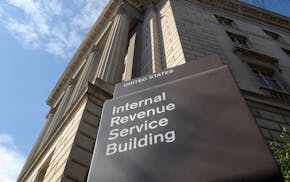What obligation do the Minneapolis public schools (MPS) have to high-performing schools and students in an era of scarce resources and massive achievement gaps?
The question was recently raised indirectly by Carla Bates, an at-large member of the school board (and for whom I voted in the last election). Bates spoke at a board meeting earlier this month in opposition to a proposed expansion of Southwest High School. Her comments caused a conflagration, prompting her to backtrack. What she said of Southwest, according to the Star Tribune, was that "the most important kids we want to invest in aren't there …"
Her words were imprecise, but her point was that Southwest has the lowest percentage of students defined as economically disadvantaged of any Minneapolis high school (32 percent, according to U.S. News & World Report). And MPS is laser-focused on addressing the achievement gap, which is in greater evidence at its other high schools. (South High, at 47 percent, is the only other city high school with fewer than 50 percent disadvantaged students, says U.S. News.)
Bates thought better a week later, noting that she "didn't want to become a lightning rod" and that she is a "strong advocate for all our children in all parts of the city."
I am sure of the first statement. But regarding the second part, I respectfully have doubts. I've met Carla several times, and I admire her candor and her independence from much of the education orthodoxy that has controlled MPS for so many years. But her comments validated a perception that many southwest Minneapolis parents like me share: The district is neither focused on nor much motivated to address the needs of our schools. It simply faces too many larger problems and too few resources.
I also sense an ideologically rooted disinterest in the needs of any school or student not identified as disadvantaged. You'll hear it from board members and administrators and even from the parents of high-performing south Minneapolis kids, steeped as they are in the city's identity- and class-based politics.
How else, for example, to interpret Bates' opposition to accepting an alumnus' gift of lights for Southwest High's football field because she didn't want MPS to pay for the electricity. (Most MPS high schools have lights, and the district pays for their electricity.)
Too many of my peers are embarrassed to advocate for programs that support gifted kids and advance academic excellence. The recent elections for board seats representing southwest Minneapolis zones barely touched on these issues, instead focusing on the achievement gap or candidate qualifications.
MPS's proposed expansion of Southwest hit a nerve because it represents an investment of scarce resources in a school that is often ranked among the state's top public high schools, one that cannot accommodate all the city (and suburban) kids who want to attend. Southwest enjoys an image among nearby Washburn and South High parents as being home to "cake eaters," the blue bloods of the lake neighborhoods' aristocracy.
The reality is that the Southwest campus ranges from utilitarian to decrepit and is overcrowded. Given that a third of its students are impoverished, it is neither lacking in diversity nor challenges. There was a violent incident in my son's math class this fall that injured the teacher. It ain't Minnetonka, folks.
But I am not here to argue for the proposed expansion, or against it. People I respect say Washburn and Roosevelt are in greater need of improvement and Washburn makes more sense for expansion (assuming the demand exists). Bates' concern about how electronic learning will affect school overcrowding is also worth discussion.
Instead, I write to remind Minneapolis of a larger point — that its public school system cannot thrive by neglecting the portion of it that works. It cannot only invest in fighting the achievement gap, nor can it address that gap by depressing the fortunes of the top end when it finds it can't bring up the bottom. I would argue that investing in Southwest and other high-performing schools is about the closest MPS can come to a "sure thing." Growth in southwest Minneapolis enrollment benefits the entire district via an infusion of relatively high per capita tax dollars with a relatively low ratio of students with costly special or remedial needs.
No right-thinking parent or city resident can be unconcerned about the achievement gap. We pay for it every day as the kids we have failed become adults who don't contribute and strain the social welfare and criminal justice systems. But the only thing keeping MPS from collapsing into itself is a core of high-performing schools and parent demand for those schools.
If the leadership of the district and its elected board won't feign interest in, much less invest in, those schools, the natural outcome will be atrophy and decline. Parents will move to the suburbs or send their kids to charter schools. Right now, due largely to the weak economy, the trend is the opposite. MPS is growing in southwest and Superintendent Bernadeia Johnson (who I believe sees the big picture) wants to accommodate that growth.
But if school board members, MPS administrators and the liberal intelligentsia of Minneapolis continue to act as if every additional dollar spent in southwest Minneapolis is an act of economic segregation — a dollar it can't invest in its real mission — MPS is headed for a wholly different set of problems. I wish smart people like Carla Bates better understood that.
Adam Platt is a Minneapolis resident with kids at Southwest High and Clara Barton Open School.
Readers Write: Politicized education, presidential debates, election strategies, small-town papers

Taxes increasingly paying for the past — not the future
!["Since the [Hennepin Healthcare System] Board took control in 2007, CEO pay increased by more than 142%. Meanwhile, that same board sunsetted employee](https://arc.stimg.co/startribunemedia/J7MD7DSJWMP3KYIYUSCQTABOAA.jpg?h=91&w=145&fit=crop&bg=999&crop=faces)

